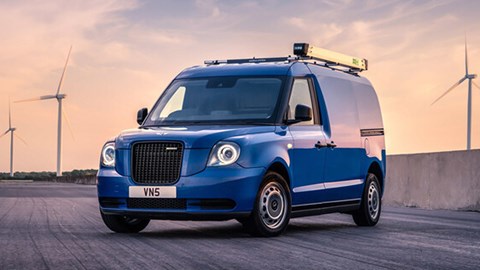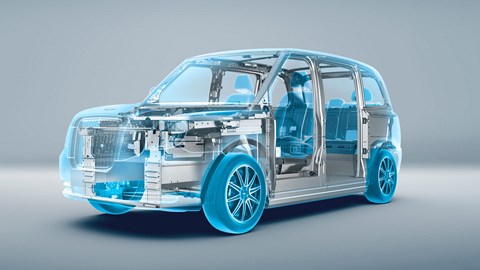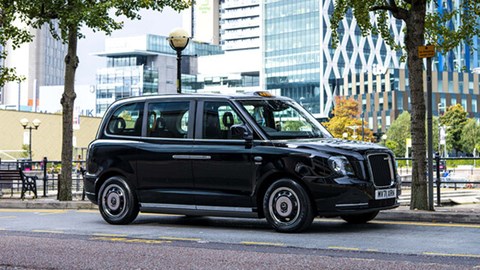► Electric taxi brand plots expansion
► Plans for 20% more sales in 2023
► Zero-carbon strategy announced
LEVC (London Electric Vehicle Company) has announced a bold new strategy for 2023. The company’s senior management team has been reshuffled – and the new appointments hope to usher in an era of increased sales, lower carbon emissions and fresh vehicles for the brand.
The firm currently makes the TX Taxi (which is a modernised version of the iconic London Black Cab) and the VN5 Van (which is basically a stretched TX with no rear windows, no rear seats and sliding doors). Because LEVC is part of the same company that owns Volvo, you’ll also find plenty of components borrowed from its Swedish sister in both vehicles.
Both vehicles are powered by the same range-extender electric powertrain. The electric portion consists of a 148bhp electric motor mounted on the rear axle and a 31kWh battery pack, offering a pure-electric range of 78 miles in the taxi and 64 miles in the van. Both vehicles also have the battery bolted to the floor up front with the driver to maximum the amount of space in the back.

The combustion part of LEVC’s powertrain comes from Volvo. It’s the same 1.5-litre three-cylinder petrol engine you’ll find in a Volvo XC40 but, unlike that SUV, it isn’t connected to the wheels via a gearbox. Its only job is to work as a generator, producing electricity to top up the battery pack and increase the vehicle’s maximum range.
With a fully charged battery and the range-extender working, LEVC says the TX Taxi can travel 393 miles, while the VN5 Van will manage 319 miles, making the system convenient for those that don’t have easy access to a charger. However, if LEVC’s latest strategy goes as planned, this powertrain could be pushed out to pasture by a newer, greener pure-electric setup.
So, what does LEVC have planned for 2023?
Over the next decade, LEVC will undergo a transformation, moving deeper into the EV space, cutting carbon emissions across its fleet and expanding its product portfolio. We haven’t yet had all the details but Alex Nan, CEO of LEVC, has given a rough outline – and he has promised to reveal more information during the next couple of months.
First off, Nan says LEVC says will become a ‘leading zero carbon mobility technology company.’ That’s marketing speak for ‘we’re going to start building pure-electric vehicles.’ LEVC’s parent company Geely has already pulled this trick with Lotus, pouring billions of pounds into the British automaker to expand its vehicle range to include an electric hypercar and an electric SUV.

LEVC’s electric vehicles will be much more practical than those from Lotus, though. It’s possible that they’ll borrow their batteries and electric motors from Volvo, treading down the same parts-sharing path laid by the TX Taxi. But for now, the shape and function of these new EVs is still unclear.
In an interview with Reuters, Chris Allen, LEVC’s managing director, confirmed that his engineers can take advantage of the technology from other Geely brands – and that will allow LEVC to move ‘in a fast, agile way.’ He also mentioned this strategy could allow LEVC to have a full range of EVs on the road in just five years, if the market conditions were right and public confidence was sufficient.

Alex Nan said: “Going forward, our state-of-the-art manufacturing plant at Ansty, Coventry, will continue to be the home of the famous, iconic TX taxi – the London black cab and new generation models. We will build on LEVC’s unrivalled heritage and grow beyond high-end taxi manufacturing, delivering smart, green, safe and accessible mobility to more customers than ever before.
Nan also commented on his ambitions to drive up LEVC’s sales figures, saying: “Watch this space in 2023, as we are targeting a 20% year-on-year sales increase, and more details on LEVC’s strategy will be revealed in Q1.” We’ll update you with more information when it becomes available.